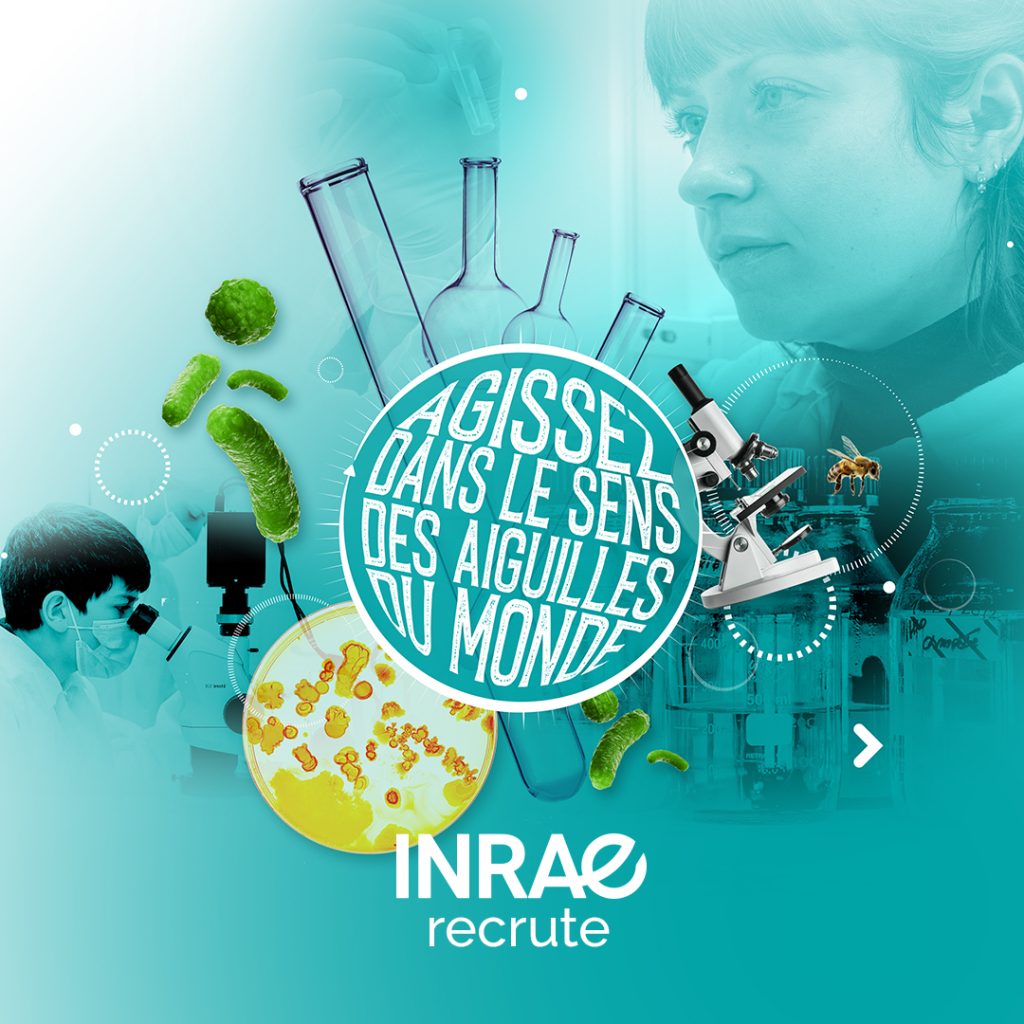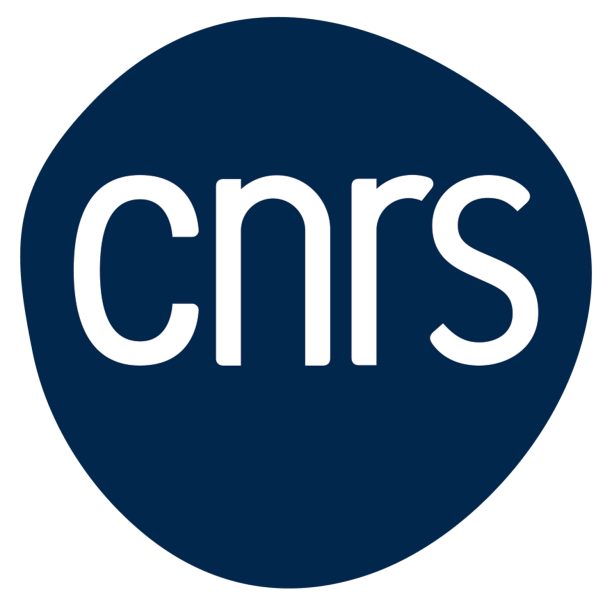

PHD - Beyond Borders: Unraveling Virus-Microbiota Interactions and decoding the glycomic symphony H/F
Référence : 2024-1579302
- Fonction publique : Fonction publique de l'État
-
Employeur :
Institut National de Recherche pour l'Agriculture, l'Alimentation et l'Environnement (INRAE)
UMR 1225 IHAP ENVT - Localisation : ENVT
Partager la page
Veuillez pour partager sur Facebook, Twitter et LinkedIn.
- Nature de l’emploi Emploi ouvert uniquement aux contractuels
-
Nature du contrat
CDD de 3 ans
- Expérience souhaitée Débutant
-
Rémunération (fourchette indicative pour les contractuels) 2100 €/mois € brut/an
- Catégorie Catégorie A (cadre)
- Management Non renseigné
- Télétravail possible Non renseigné
Vos missions en quelques mots
Thesis Objectives: This thesis aims to unravel the intricate interactions among mucin glycans, the respiratory microbiome, infectious agents (including coronavirus (BCoV), influenza D virus (IDB), and Mycoplasma bovis), and animal health and welfare. Specifically, the project will focus on:
Virus-Glycan Interactions:
· Investigating specific virus-glycan interactions in vitro and ex vivo during co-infection by BCoV and IDB.
· Examining whether key mucin glycans play essential roles in other viruses, including those with zoonotic potential.
· Validating these interactions through in vitro binding assays and immunohistochemistry on fixed tissue samples (lung explants).
Microbial Culturomics:
· Developing and implementing culturomics on nasal samples to enrich, identify, and isolate bacteria with potential beneficial effects against pathogens.
· Using culturomics as a basis for obtaining enzymes that will be subsequently tested in vitro against target viruses (in collaboration with the Norwegian Veterinary Institute).
Role of Microbial Enzymes:
· Elucidating how microbial enzymes (e.g., proteases and sialidases) modulate viral infectivity.
· Investigating how selected microbial enzymes can cleave viral fusion proteins and influence infection dynamics.
Methodology and Infrastructure: This research will leverage state-of-the-art facilities, including animal experimentation infrastructure at the ENVT, glycoconjugate analysis equipment at the Platform for Glycoconjugate Analysis (Pagés) in Lille (utilizing NMR and mass spectrometry), and sequencing platforms for microbiome data. Additionally, standard microbiology and cellular virology facilities will be used for culturomics, virus/protein production, and lung explant studies.
Expected Impact: The outcomes of this research may lead to the development of pro-, post-, and prebiotics aimed at enhancing calf respiratory barriers. Ultimately, this work could revolutionize prevention and management strategies for bovine infectious diseases, improving animal health and welfare.
Profil recherché
The candidate will engage different collaborations throughout the research journey:
- Interdisciplinary Collaboration: The candidate will be at the intersection of multiple scientific disciplines, requiring effective communication and collaboration with experts in virology, microbiology, glycomics, and animal health.
- Academic and Research Community: They will be part of a vibrant academic community at the ENVT and INRAE, and will interact with various research groups, including those at the Glycoconjugate Analysis Platform in Lille and the Norwegian Veterinary Institute (NVI).
- Mentorship and Guidance: The PhD student will receive mentorship from co-supervisors who are proficient in the methodologies to be used, providing an environment for learning and professional development.
- Scientific Network: Engagement with national and international funding bodies, as well as participation in scientific conferences and seminars, will be crucial for networking and disseminating research findings.
- Peer Interaction: Regular interactions with other PhD students, postdocs, and research technicians will form an essential part of the candidate’s daily work environment and peer support system.
- Inter-Institutional Relations: The project involves cooperation between different national and international institutions, which will require the candidate to navigate and maintain productive relationships across organizational boundaries.
Training and skills
- Interdisciplinary Understanding: A comprehensive grasp of virology, microbiology, and glycomics, and the ability to synthesize these disciplines into a cohesive research approach.
- Theoretical Foundations: Solid knowledge of the theoretical underpinnings of bacteriology and virology to inform experimental design and data interpretation.
- Data Analysis Principles: Familiarity with bioinformatics, statistical methods, and data analysis techniques relevant to large datasets generated by sequencing and glycomic analyses
- Laboratory Techniques: Familiarity in a range of laboratory molecular techniques and immunohistochemistry
- Computational Proficiency: Computational skills to manage and analyze large datasets, including programming languages like R.
- Collaborative Ability: Effective communication and teamwork skills to collaborate with diverse national and international research teams, adapting to various research cultures and expectations.
Niveau d'études minimum requis
- Niveau Niveau 7 Master/diplômes équivalents
Localisation

Éléments de candidature
Personnes à contacter
- nuria.mach@inrae.fr
- gilles.meyer@envt.fr
Qui sommes-nous ?
NOTRE AMBITION : AGIR POUR LA VIE, L’HUMAIN, LA TERRE
Premier organisme de recherche spécialisé au monde en agriculture, alimentation et environnement, INRAE est né le 1er janvier 2020 de de la fusion entre l’INRA et IRSTEA. Nous sommes une communauté de travail de 12 000 personnes, avec plus de 200 unités de recherche et une quarantaine d’unités expérimentales implantées dans 18 centres sur toute la France.
Notre Mission ?
Face à l’augmentation de la population, au changement climatique, à la raréfaction des ressources et au déclin de la biodiversité, INRAE construit des solutions pour des agricultures multi-performantes, une alimentation de qualité et une gestion durable des ressources.
Pour répondre à ces grands enjeux mondiaux, nous avons besoin de renfort dans nos équipes. Des métiers de la recherche aux métiers de l’appui, l’INRAE recrute à tout niveau de diplôme (du CAP/BEP à Bac+8) !
Rejoignez une communauté engagée et agissez pour l’intérêt général !
Descriptif du service
Introduction: Bovine respiratory infectious diseases pose a significant health challenge for cattle, impacting both their well-being and overall health. This disease results from a complex interplay between bacterial and viral pathogens. In healthy animals, the respiratory tract’s mucus layer, containing mucins and a diverse microbial ecosystem, acts as a barrier to prevent pathogen invasion. However, viruses, especially, can exploit mucin glycans to infect the host. While current research highlights the critical role of the respiratory microbiome-glycome complex in colonization by pathogens, detailed information in animals remains limited.
À propos de l'offre
-
The research program will be structured around 3 main axes:
- Describe specific virus-glycan interactions in vitro and ex vivo and determine if the main mucin glycans during co-infection by IDV and BCoV are essential for other viruses, including those with zoonotic potential. The student will compare the list of sialic acids and glycoconjugates of interest identified by the glycomic approach with an in vitro binding test. Afterwards, they will perform immunohistochemistry (IHC) of glycans on fixed tissues (lung explants).
- Develop and implement culturomics on nasal samples to enrich, identify, and isolate bacteria with potential beneficial action against pathogens. The culturomic approach will also form the basis for obtaining enzymes that will then be tested in vitro against the viruses of interest, thanks to protocols shared between IHAP and NVI (Norway).
- Elucidate the role of microbial enzymes (e.g., proteases and sialidases) in modulating viral infectivity. This joint project will focus on studying how selected microbial proteases, sialidases, and esterases can cleave viral fusion proteins and influence infection.
-
Vacant à partir du 01/10/2024
-
Chercheuse / Chercheur


